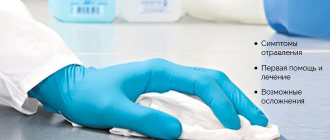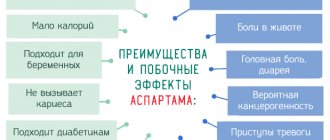Eggs should be included in the daily diet, both in their natural form and as additives in various dishes: omelets, baked goods, salads, mayonnaise. But sometimes eggs cause severe gastrointestinal disorders. And this happens not only when eating fresh, but also heat-treated eggs. In what cases does egg poisoning occur, and what to do?
Causes of chicken egg poisoning
Most often, poisoning occurs from eggs with damaged shells. This also applies to raw products that were not stored correctly or were not subsequently subjected to sufficient heat treatment.
Experts point out that:
- poisoning often occurs from raw or half-raw eggs;
- this becomes possible due to contamination of products with the causative agent of salmonellosis (a disease that is transmitted to humans from domestic animals or birds);
- The white and yolk are equally contagious;
- poisoning occurs after eating dishes that were prepared using raw eggs, for example, pudding or sauce, homemade mayonnaise.
Bacteria that provoke the development of salmonellosis live on the inner shell of the shell. Externally, an infected egg is no different from a normal one. However, if it is not previously subjected to heat treatment, the probability of infection will be 100%.
How to identify a spoiled egg in water: “float test”
The float test is a quick and easy way to check the freshness of an egg. The float test does not determine whether an egg has gone bad, but it does provide useful information about the age of the egg.
To perform the float test, place the egg in a large bowl of water. If the egg sinks or remains on the bottom, it is still fresh. The old egg will either stand on its end or float.
The float test works because air accumulates inside the egg as it ages and this increases its buoyancy.
However, an egg that floats may be safe to eat. A person can further test the egg by cracking it to smell it and check for visible signs of contamination.
Symptoms of chicken egg poisoning
The first sign is profuse and repeated vomiting, causing pain. Due to poisoning with eggs containing salmonella, vomit acquires a mucous consistency and a specific repulsive odor. At the same time, acute diarrhea occurs.
Frequent stools after eating stale or contaminated eggs. During diarrhea, feces become watery and may acquire a light yellow or brownish tint.
Complementing the clinical picture:
- attacks of fever and chills;
- frequent dizziness, even fainting;
- weakness and drowsiness, while the person cannot fall asleep;
- sour or bitter belching;
- nausea;
- increase in body temperature (in some cases it can rise to 40 degrees or more);
- muscle weakness.
Symptoms of egg poisoning include pale skin and mucous membranes in the mouth . Painful sensations in the abdominal area, reminiscent of intestinal colic, are also noted.
The condition is especially critical for pregnant women. In case of severe poisoning, there is a possibility of complications developing. There is a threat of miscarriage, especially in the early stages. In the second and third trimester, the condition is not so dangerous. Treatment is carried out without the use of antibiotics. Particular attention is paid to normalizing the patient’s drinking regime.
First aid for chicken egg intoxication
It is necessary to detoxify the body. It is unacceptable to stop vomiting until the ambulance arrives. Moreover, they are necessary for gastric lavage.
As a first-priority measure, prepare a soda solution: one tsp per liter of water. baking soda. A liter of solution is drunk immediately, after which vomiting is induced. This way the body and stomach are cleansed of toxins.
Other features of first aid for intoxication:
- Compliance with drinking regime. This will prevent the development of dehydration. You need to drink clean water or saline solutions in small portions. The latter retain water well in the body.
- Use of sorbents. This helps reduce the number of unwanted microorganisms in the gastrointestinal tract. At the first aid stage, activated carbon, Enterol or Enterosorb are used.
- Be sure to use saline solutions, for example, Regidron. They compensate for microelements lost during diarrhea and vomiting.
Treatment Methods for Egg Poisoning
To determine the nuances of the rehabilitation course, doctors conduct a bacteriological examination. Based on the data obtained, antibiotics are prescribed to facilitate the fight against the pathogen. In case of poisoning with raw eggs and the development of salmonellosis, antibiotic therapy is necessary.
In case of severe dehydration, intravenous administration of saline and glucose is prescribed.
Probiotics are used to normalize intestinal microflora. This is carried out not only to eliminate pathogenic bacteria, but also after the use of antibiotics, which destroy beneficial microorganisms along with harmful ones.
A mandatory part of the treatment is a course of Linex and Bifiform. It is advisable to use vitamin and mineral complexes, drugs that stimulate the immune system. For example, echinacea tincture.
Treatment for egg poisoning lasts from a week to two months. In severe cases, therapy is carried out in a hospital setting. Before discharge, a control stool test is required. If there are no traces of salmonella, you can go home.
What to do if a person is poisoned?
At the first signs of poisoning, you must immediately call an ambulance, since in medical practice cases of death due to acute salmonellosis have been recorded. The main reason is rapidly increasing dehydration of the body, so the victim must be constantly offered water or a specially prepared saline solution (for example, Regidron). The patient should be given 1 teaspoon of water every 15 minutes.
It is very important to rinse the stomach as quickly as possible . This is done by rinsing with a warm saline or soda solution followed by inducing vomiting. In a hospital setting, such patients are usually prescribed the following treatment regimen:
- antimicrobial and antibacterial agents (Enterofuril, Stopdiar, Nifuroxazide);
- sorbent substances (“Neosmectin”, “Polysorb”, “Enterosgel”, “Filtrum-sti”);
- preparations containing probiotics (Acipol, Enterol, Bifiform, Normobakt).
Probiotics are used to restore intestinal microflora, but you can start taking them after acute diarrhea syndrome has stopped (approximately on the fourth or fifth day of treatment). In case of severe dehydration, the patient is given infusion therapy with intravenous administration of a solution of glucose and sodium chloride.
Important! Broad-spectrum antibiotics are prescribed only after bacterial culture of the flora and identification of the type of pathogen.
This is due to the fact that the symptoms of food poisoning are similar to some infectious diseases, for example, rotavirus infection, in which the use of antibacterial drugs is unjustified and ineffective.
Chicken egg poisoning in children
Clinical manifestations in adults and children are the same. However, the disease progresses much faster and more severely. Infants and newborns are in a separate risk group. In their case, salmonellosis after poisoning with raw eggs can result in death.
It should be noted that:
- infection in childhood usually occurs from an adult, and therefore it is necessary to thoroughly disinfect all household items;
- the first critical sign to look for in young children is bloody stool;
- It is permissible to use Methyluracil tablets, which are used with food ( only as prescribed by a doctor! ).
The dosage of medications for a child from three to eight years old should be approximately half that for an adult. In each specific case, the dosage is determined by the doctor. He pays attention to the general condition of the child. The recovery course takes at least a month.
Video: Don't joke with salmonella
Read further:
Salmonellosis in quail and chicken eggs - how to recognize
Butter poisoning: can you get poisoned?
How to prepare chicken broth in case of poisoning for children and adults
10 ways to strengthen your immune system
Ways to eliminate swelling after mosquito bites
Article rating:
( 1 ratings, average: 5.00 out of 5)
Share with friends:
You may also be interested in:
What to do in case of water poisoning (sea, hellebore) for children and adults
Food poisoning of non-microbial origin - prevention and consequences
Acute muscarine poisoning - relief measures and consequences
Cheese poisoning
Consequences and complications
Poisoning with boiled or raw eggs, if measures are not taken in time, can lead to the development of serious consequences. Among them:
- hypovolemic shock - a rapid decrease in circulating blood volume;
- acute renal and cardiovascular failure;
- septic complications, including osteomyelitis, purulent arthritis, abscess of the kidneys or liver, or other internal organs (for example, the brain).
In particularly difficult cases, salmonellosis is complicated by inflammation of the appendix, peritonitis (inflammation of the peritoneum) and even meningitis (inflammation of the meninges). Poisoning can cause urinary tract infections, pneumonia, and in severe cases, toxic-infectious shock. That is why it is not recommended to delay treatment and first aid.
Benefits of eggs
Eggs are a source of protein, which plays an important role in the life of the body. Protein contained in this product:
- participates in the formation of muscle tissue;
- monitors bone health;
- maintains normal weight.
Scientists have proven that folic acid (vitamin B9) present in yolk helps fight cardiovascular diseases by promoting the proper functioning of the hematopoietic system and prevents hypertension. The presence of vitamin B9 in the diet is mandatory during pregnancy, since the substance plays an important role in the formation of the fetus.
Along with protein and folic acid, eggs contain:
- retinol (vitamin A), necessary for vision, hair growth, healthy skin;
- choline (B4), involved in the structure of cells and supports the functioning of the kidneys, liver, and brain;
- Vitamin D is essential for the body’s absorption of calcium;
- microelement selenium - important for the functioning of the thyroid gland and immune system;
- minerals: iron, phosphorus, zinc, magnesium.
Thanks to their components, eggs are so popular in the diet of people who adhere to proper nutrition. The protein they contain can maintain a feeling of fullness for a long time, thanks to which people watching their weight are able to avoid overeating.
You can often hear disputes about the dangers of cholesterol in the product. But eggs contain only 180 mg of lipid fats. This is nothing compared to the 1800 mg of cholesterol produced by the liver every day.
The lecithin contained in the yolk helps regulate cholesterol levels in the blood.
Nutrition and recovery
After poisoning with a rotten egg, like any other, a special diet is indicated. It will need to be observed not only during the course of drug therapy, but also for 14 days after its completion.
In the first 24 hours, any food is excluded from the patient's diet . Such home fasting can last until the end of the second day. The decision on this is made by the doctor after studying the patient’s condition over time. Starting from the third day, a number of products are allowed to be introduced into the diet:
- boiled potatoes – in their jackets possible;
- soups made from fresh vegetables;
- porridge with water;
- low-fat meat broths;
- natural berry jelly;
- boiled or oven-cooked fruits and vegetables;
- rye bread crackers.
Until recovery, it is recommended to give up milk, kefir and other fermented milk products.
It is unacceptable to consume fried, fatty foods, as well as seasonings and spices. The same applies to salted or pickled vegetables and sweets.
Raw vegetables or fruits can be included in the diet, but only on the fifth or sixth day after the start of therapy. Avoid eating eggs in any form, including poached.
Smell test
One of the easiest and most reliable ways to determine whether an egg has gone bad is to smell it.
A spoiled egg will give off an unpleasant odor when you open the shell. This smell will be present even if you have already cooked the egg.
In some cases, when the egg is very old or rotten, you may notice a foul odor before you break it.
If the egg smells bad, you need to get rid of it. Since this test is very reliable, it is recommended that you give each egg a good sniff before eating or using it.
Prevention measures
It will be much more difficult to get poisoned by chicken eggs if you choose them correctly:
- When buying eggs, pay attention to the expiration date - you cannot purchase expired ones;
- eggs with damaged shells are not used for food - at most during the baking process, because eating such an undercooked egg can be extremely dangerous;
- the presence of a repulsive odor or change in color, the appearance of spots on the shell indicates staleness or spoilage of the product.
Before using chicken eggs, it is highly recommended to rinse them with hot water . It is acceptable to use a weak soap solution. You can avoid poisoning by preparing hard-boiled eggs instead of soft-boiled. When cooking scrambled eggs, it is important to ensure that they are fried completely - there are no liquid or transparent areas.
You can replace chicken eggs with quail eggs. They include more useful components and microelements. At the same time, it is almost impossible to become infected with salmonellosis from them. Disease pathogens do not survive in the quail's body due to the high body temperature of the birds. Such eggs are much smaller in size than chicken eggs and they are more expensive, but this product is very useful for children and pregnant women.
Chicken egg poisoning cannot be ignored. If the cause is salmonella entering the body, then the consequences can be very critical. In all other cases, you still cannot do without gastric lavage and diet. This is what will help restore the functioning of the stomach and digestive system as a whole.
How does salmonellosis manifest itself?
Since the bacterium can be freely located both on the surface of the shell and under it, it is better to destroy an obviously infected egg. But due to the fact that only a clinical examination of the object or an analysis carried out on a bird that laid an egg can determine the infection, ordinary people will not be able to determine the danger on their own.
Only hard-boiling the product can help here. This safety measure is explained by the fact that the pathogen will die when the temperature reaches above 40 degrees.
The average incubation period is from half a day to a day. Exceptions occur much less frequently when the timing shifts to six hours of the latent period or exceeds two days.
Only an experienced team of doctors can help in this situation, since it is practically impossible to alleviate the victim’s condition and provide quality treatment at home.










